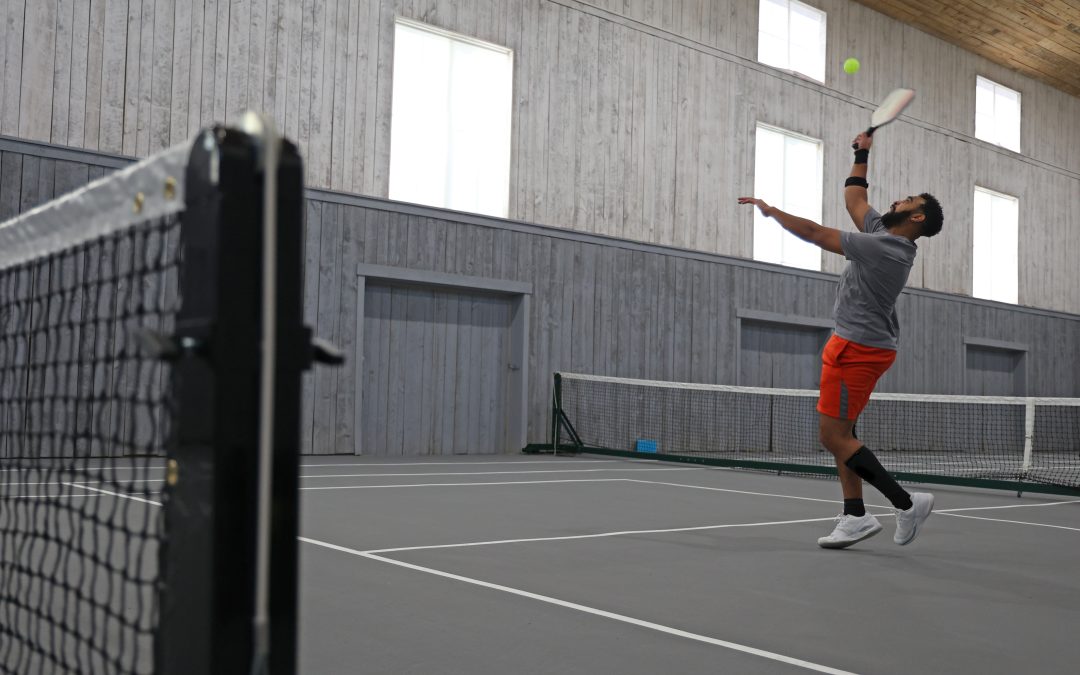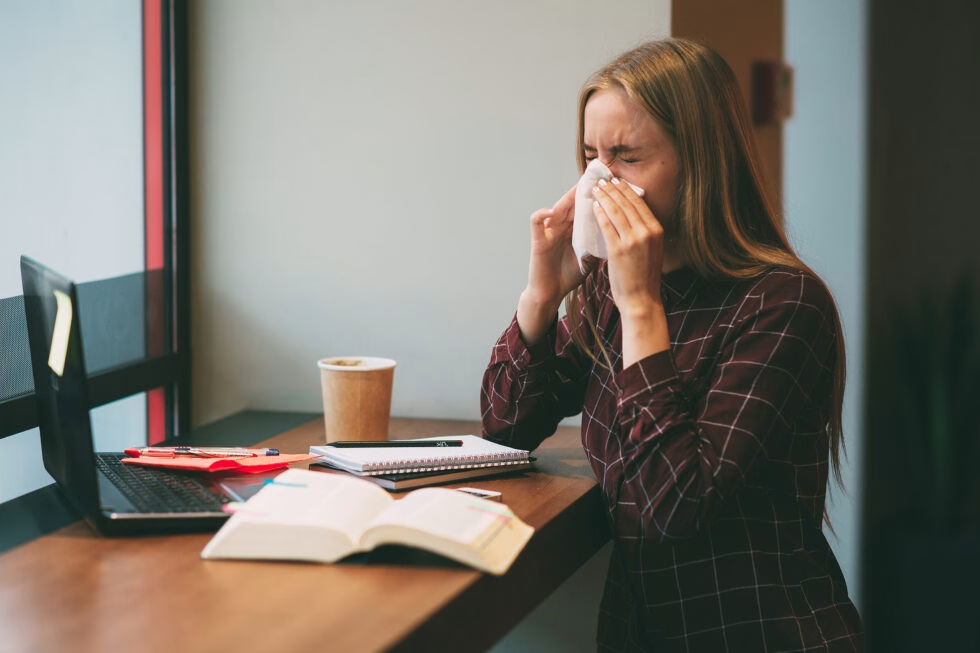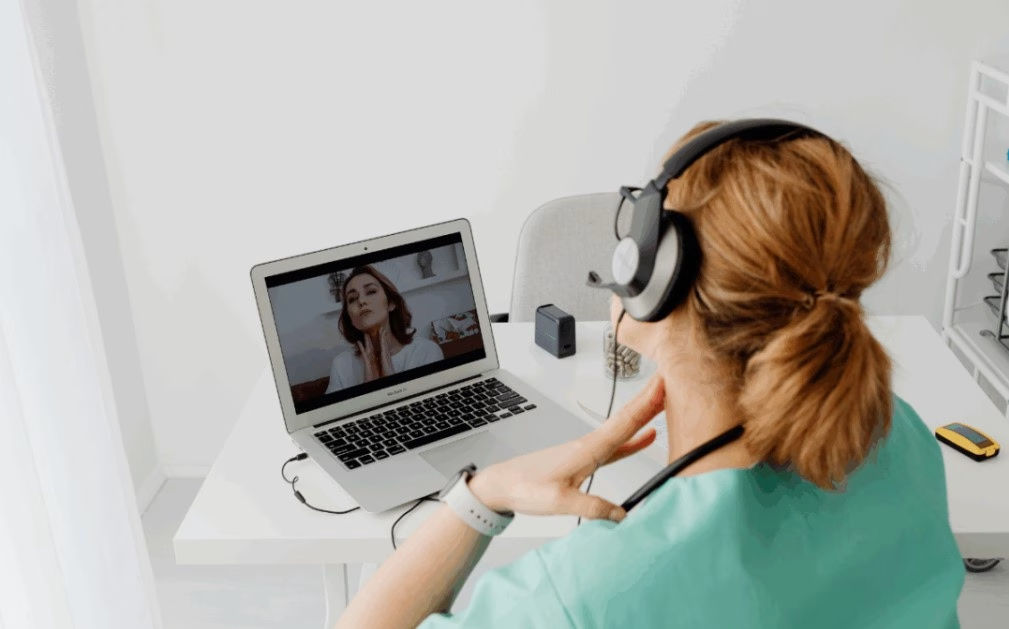
A Guide to Boosting Vitamin D and Managing Seasonal Affective Disorder (SAD)
The holidays bring a lot of travellers through Ballantyne this time of year, whether to visit family or to venture out to the nearby Grayson Highlands State Park. It’s a busy time for everyone finishing up holiday shopping at shops like Ballantyne Village or grabbing an extra dose of energy at local favorites like Brakeman’s Coffee & Supply. No matter what this busy season brings, it is important to be aware of how the weather might be affecting your mental health.
As the winter months approach and daylight hours decrease, maintaining optimal levels of vitamin D becomes increasingly challenging in the cold Ballantyne weather. This essential nutrient plays a crucial role in supporting the immune system, bone health, and overall well-being. In this guide, we will provide you with practical tips on how to get enough vitamin D during the winter months while also addressing the impact of Seasonal Affective Disorder (SAD).
How to Get Enough Vitamin D
- Embrace Natural Sunlight: Despite the colder weather, spending at least 15-30 minutes outdoors daily can provide you with the best source of vitamin D synthesis in your body. You could take a run through Ballantyne’s Backyard or visit The Fit Trail for some outdoor exercise stations to get some fresh air and enjoy the free equipment.
- Choose Vitamin D-Rich Foods: Incorporate fatty fish (salmon, mackerel, tuna), dairy products, eggs, and mushrooms into your winter diet for a natural vitamin D boost.
- Consider Vitamin D Supplements: Consult healthcare professionals to determine if vitamin D supplements are necessary, especially for those with limited sun exposure or specific dietary restrictions.
- Engage in Indoor Exercise: Stay active and expose yourself to natural light by participating in indoor exercise activities such as joining a gym, trying home workouts, or playing indoor sports. Ballantyne is one of the most popular places to play pickleball in Charlotte, NC. There are 8 outdoor courts and 7 indoor courts perfect for when it is too miserable to play outside.
- Get Your Vitamin D Levels Checked: Visit AFC Urgent Care for a comprehensive vitamin D level check to ensure you stay on track with your vitamin D goals.
Recommended Daily Intake of Vitamin D
The required amount of vitamin D varies based on age. Here are the average daily recommendations in micrograms (mcg) and International Units (IU):
| Age | Recommended Amount |
| Birth to 12 months | 10 mcg (400 IU) |
| Children 1–13 years | 15 mcg (600 IU) |
| Teens 14–18 years | 15 mcg (600 IU) |
| Adults 19–70 years | 15 mcg (600 IU) |
| Adults 71 years and older | 20 mcg (800 IU) |
| Pregnant and breastfeeding teens and women | 15 mcg (600 IU) |
Managing Seasonal Affective Disorder (SAD)
Seasonal Affective Disorder (SAD) is a type of depression that can affect individuals during the fall and winter months due to reduced exposure to natural sunlight. Recognizing the symptoms of SAD is crucial for your well-being.
Understanding Your Feelings
SAD is characterized by a range of symptoms that can significantly impact your daily life. These symptoms may include low energy and fatigue, changes in appetite, feelings of sadness or hopelessness, loss of interest in activities, difficulty concentrating, and changes in sleep patterns. It’s important to acknowledge and address these feelings rather than dismissing them as a normal part of the winter season.
The Impact of Sunlight
Reduced sunlight during the fall and winter months can disrupt your body’s internal clock and hormone regulation, leading to imbalances in melatonin and serotonin levels. Melatonin affects sleep patterns, while serotonin plays a crucial role in regulating mood and emotional well-being. Increasing your exposure to natural light and considering light therapy can help regulate your body’s natural rhythms and alleviate the symptoms of SAD.
Light Therapy
Light therapy, also known as phototherapy, is a safe and effective treatment for SAD. It involves exposure to bright artificial light that mimics natural sunlight. Light therapy boxes are typically used in the morning for 20-30 minutes to stimulate serotonin production and regulate the circadian rhythm. Consulting with a healthcare professional is important to determine if light therapy is suitable for you and to choose the appropriate treatment protocol.
Personalized Self-Care
In addition to light therapy, incorporating self-care practices into your routine can significantly help manage the effects of SAD. Spending time outdoors, engaging in activities you enjoy, maintaining a healthy diet, getting regular exercise, prioritizing sleep, and seeking social connections are all important aspects of self-care that can alleviate SAD symptoms.
By combining efforts to boost vitamin D levels and addressing the impact of Seasonal Affective Disorder, you can ensure your overall well-being during the winter months. Remember to consult with healthcare professionals before making significant changes to your lifestyle or starting new supplements. Our dedicated team at AFC Urgent Care Ballantyne is here to support you on your journey to optimal health. Contact our Ballantyne clinic today if you have questions about managing SAD or your vitamin D intake.


